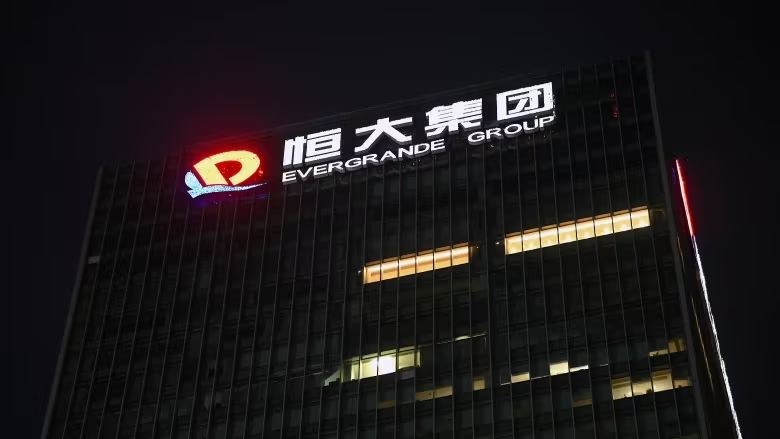
The Evergrande headquarters is seen in Shenzhen, southeastern China, in September 2021. (Noel Celis/AFP/Getty Images)
A recent ruling by a Hong Kong court has mandated the liquidation of China Evergrande Group, a move poised to impact China's financial markets amidst an ongoing crisis. Evergrande, renowned as the world's most indebted developer with over $300 billion US in liabilities, faced severe repercussions after defaulting on its debt in 2021.
Justice Linda Chan, presiding over the case, emphasized Evergrande's prolonged failure to offer efficient communications or resolutions over an 18-month period, leading to the court's decision. The company's shares plummeted by up to 20 per cent prior to the hearing, prompting the suspension of trading in China Evergrande and its subsidiaries.
This liquidation ruling, impacting a developer with $240 billion US in assets, is expected to intensify the fragility of Chinese capital and property markets. With China grappling with economic underperformance and a subdued property market, any further market shocks could impede efforts to stimulate growth.
While the liquidation process may be complex and potentially politicized due to multiple authorities involved, immediate impacts on Evergrande's operations, including home construction projects, are anticipated to be minimal. It could take months or even years for the offshore liquidator appointed by creditors to assume control of subsidiaries across mainland China, a separate jurisdiction from Hong Kong.
Evergrande's attempts to revamp its $23 billion US debt plan with bondholders were thwarted in late September following investigations into its billionaire founder, Hui Ka Yan, for suspected crimes. The liquidation petition, initially filed by Top Shine in June 2022 due to Evergrande's failure to repurchase shares, underscores the company's prolonged legal battles.
Before this ruling, at least three Chinese developers had already been ordered to liquidate by a Hong Kong court since the onset of the debt crisis in mid-2021. The Evergrande saga unfolds against the backdrop of broader concerns regarding China's economic stability and the implications for global markets.
In summary, Evergrande's liquidation underscores the complexities and challenges facing China's property sector and financial markets, with far-reaching implications for investors and policymakers alike.















